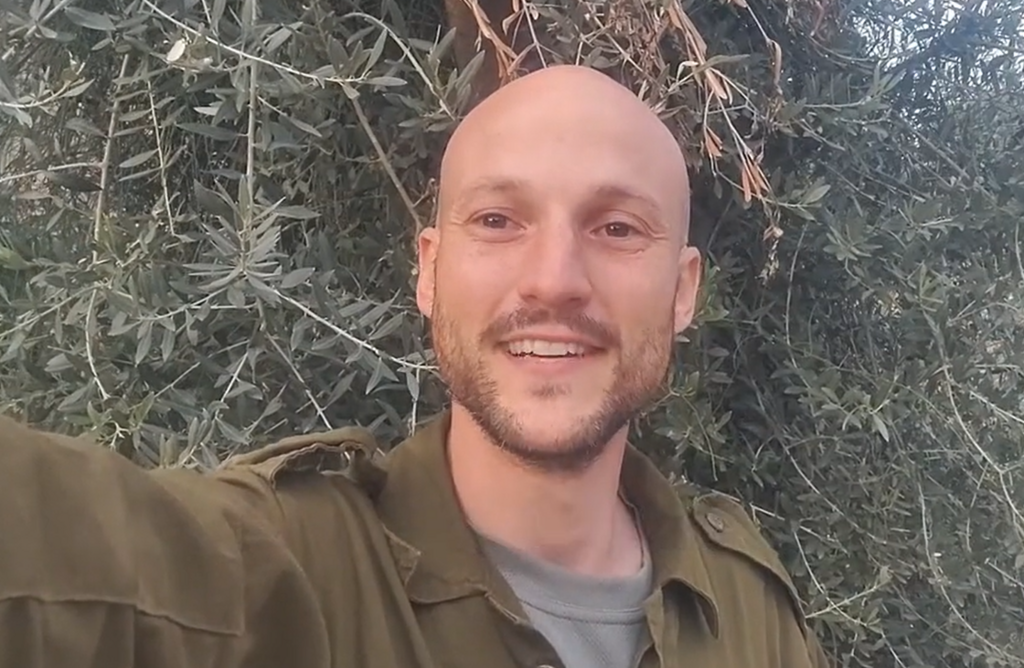Getting your Trinity Audio player ready...
Yonatan Alman, 33, from Rehovot, learned Yiddish here and there as a child, but he never imagined that the ancient Jewish language would turn him into a TikTok star during a war. Alman, a reserve master sergeant, is a commander of locomotive artillery and was drafted to the reserves on October 8. In recent months he has been posting videos in Yiddish in which he tells his followers about the routine of war, explains how to shoot shells and breathes new life into the partisan anthem.
Read more:
Alman said that he started learning Yiddish seriously about two years ago, following the death of his father who spoke fluent Yiddish: "I wanted to connect, I knew it was something he grew up with. I started learing and really fell in love with the language." He started learning Yiddish with the Duolingo app, and then enrolled in two courses at Beit Shalom Aleichem, the Yiddish cultural center.
Did you consider the possibility that these videos would become so viral?
"I didn't think it would be like this. Before the war, I was very active in Yiddish culture, for example in Yung Yidish (an association for the promotion of Yiddish culture) at the central station. There was a bit where Eyal Golan did a song in Yiddish, so I did Eyal Golan in Yiddish. But it didn't have many views, I didn't know how to operate Tiktok's interface."
You know the magic secret, why people love these videos so much?
Alman: "In one of my meetings with Dr. Mordechai Yoshkovsky, who understands a lot about the language, he said that Yiddish is a Jewish language that has accompanied our people for 1,000 years, and it gives us a certain mindset with which we overcome all difficulties - we overcame exile, hunger, cold, pogroms and the like."
Alman says that his entire team learned to say commands in Yiddish, including: "stopt arayen di bomba" (place the shell), "git arayen de oipreistaff" (insert the explosive), "farmacht dem tir" (close the door) and "git achtung ma'sist" (caution, firing). Although not all his soldiers are from Eastern Europe, Alman said "they had four months to learn."
"There is something special about Yiddish," he concludes. "I don't know how to put it - something Jewish, its letters are our ABC, which is pleasant to our ears."



